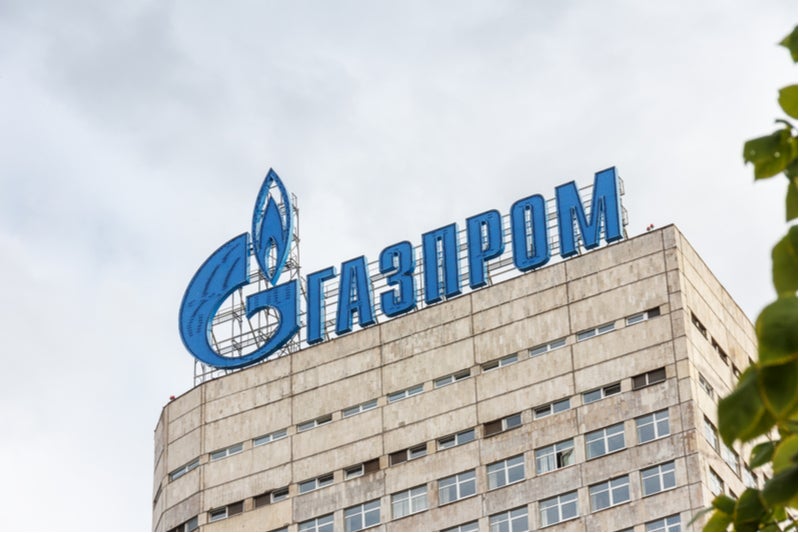
Three events over past months suggest Russian suppliers could be losing their influence in Eastern Europe. While countries in this region host pipelines for Russia to supply the rest of Europe, several are looking to end their reliance on Russia for oil and gas. Offshore Technology examines the stories showing a changing scene for Eastern Europe.
1. “Fair” pricing for Poland
Three weeks ago, Russian producer Gazprom cut the prices it charges Poland’s state gas company. The move followed an order by an international arbitration court in Stockholm issued near the end of March. The tribunal agreed Russia had unfairly hiked prices over previous months by $1.5bn.
However, in the weeks following the decision, Gazprom continued to invoice Polish Mining and Gas Extraction Company (PGNiG) at the original rate. On 6 May, Gazprom began complying with these orders. However, it did not repay any of the overpaid funds at the time.
At the time, a PGNiG company spokesperson stated: “Gazprom declared it will adjust the invoices issued for March and April. The declaration has met the expectations of PGNiG concerning full and immediate fulfillment of the Court of Arbitration’s verdict.”
This ruling follows a similar ruling against Gazprom in December when it was ordered to pay Ukrainian company Naftogaz $2.9bn due to lack of supply. It has since paid this bill, with interest.
2. Supplies to Germany and Poland dry up
On Monday, German gas company Gascade said gas flows from Russia to its Frankfurt pumping station had completely halted that morning. The pumping station lies at the end of the Yamal-Europe Pipeline, which begins in Tver Oblast, Russia. It then passes through Belarus for 575km and Poland for 683km.
Germany is not Eastern European, but the flow cut comes after a Polish/Russian import deal from the 90s also ran dry. When the deal expired on 17 May, Polish grid operator Gaz-System began auctioning capacity on the pipeline.
Since then, the use of the pipelines has dramatically decreased. Gaz-System said clients have booked capacities of four million kWh/h for Sunday and Monday. In comparison, booking stood at 12.5 million kWh/h on Saturday.
Because of this, Gascade has said: “There is no need for the pumping stations to work 24 hours a day at such low orders for the transit service.”
3. Belarus looks elsewhere for fuel
Also on Tuesday, a report by Polish analyst firm Esperis showed how Belarus is looking away from Moscow to supply its fuel. Belarus shares a border and a political union with Russia, though it has repeatedly rejected Russian proposals to form an even closer relationship.
The country had a long-standing duty-free supply deal with Russia. However, disagreements between the countries have caused Russia to disrupt and threaten the deal. Most notably, this happened in 2004 when Gazprom shut off the supply to Belarus after it failed to agree on a price to buy the country’s pipeline network from Beltransgaz.
At the start of this year, Russia cut its oil deliveries to Belarus by three-quarters after ending the previous contract. Smaller Russian oil suppliers with sympathies to Belarus supplied enough oil for refineries to work at minimal levels.
As a result of this, Belarus started buying oil from the US and solicited supply deals from central European countries. It has since taken shipments from Norway, Azerbaijan and Saudi Arabia.
The US Secretary of State has since said US companies “stand ready to deliver 100% of the oil Belarus needs at competitive prices”.
Price war with Saudia Arabia means Russian defeat in Belarus
When Russia entered into an oil price war, it backed down to ship as much oil as possible. It further cut the price offered to Belarus, but the relationship remains damaged. The Esperis report says this means Russia will be Belarus’ cheapest oil supplier until 2024. It now seems likely Belarus will seek alternative suppliers.
Two weeks ago, Russian state oil company Rosneft said it expects to ship nine million tons to Belarus this year. This is around half the level of shipments in other years.
The Esperis report reads: “Last year Belarusian president Alexander Lukashenka stated that according to internal analyses and studies, the reverse flow on Druzhba pipeline seemed to be the most feasible option for possible alternative crude oil deliveries to Belarus.
“Since that time also other Belarusian officials have confirmed that they would like to see first test supplies from the direction of Poland as early as before the end of 2020.”
As part of its diversification, Belarus has taken shipments via Ukraine and Poland. This remains the most viable alternative to supply Belarus before pipeline works are completed.


